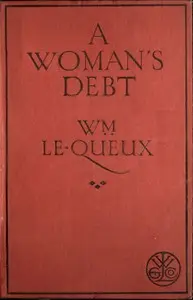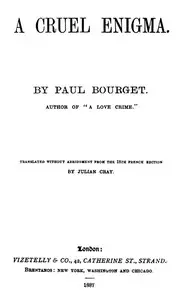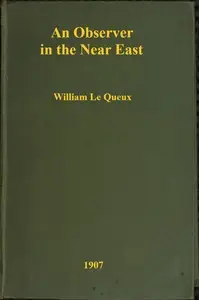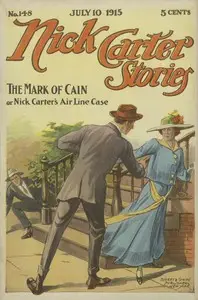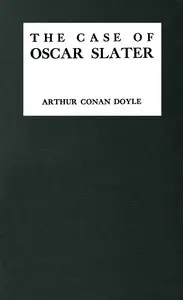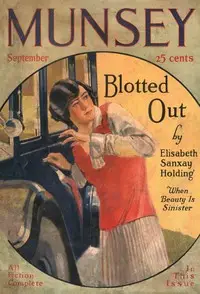"Whatsoever a Man Soweth" by William Le Queux is a story set in the early 1900s, diving into the tangled lives of characters caught between love, duty, and secrets. At the heart of the story are Wilfrid Hughes and the witty but troubled Honourable Eva Sybil Burnet, nicknamed "Tibbie," whose past and unconventional life choices lead to moral challenges. Expect the story to focus on exploring themes of love, the weight of decisions, and complex relationships, all while Tibbie navigates a world of societal expectations and hidden truths. The plot opens with a conversation that hints at a shared history between Wilfrid and Tibbie and foreshadows dramatic events in their relationship. Much of the early story emphasizes Tibbie's internal struggle as she grapples with choices complicated by her complex situation, setting the stage for mystery and potential betrayal.

Whatsoever a Man Soweth
By William Le Queux
In a world of secrets and societal expectations, a woman's hidden past threatens to unravel as love and duty collide, forcing a man to confront the consequences of her actions.
Summary
About the AuthorWilliam Tufnell Le Queux was an Anglo-French journalist and writer. He was also a diplomat, a traveller, a flying buff who officiated at the first British air meeting at Doncaster in 1909, and a wireless pioneer who broadcast music from his own station long before radio was generally available; his claims regarding his own abilities and exploits, however, were usually exaggerated. His best-known works are the anti-French and anti-Russian invasion fantasy The Great War in England in 1897 (1894) and the anti-German invasion fantasy The Invasion of 1910 (1906), the latter becoming a bestseller.
William Tufnell Le Queux was an Anglo-French journalist and writer. He was also a diplomat, a traveller, a flying buff who officiated at the first British air meeting at Doncaster in 1909, and a wireless pioneer who broadcast music from his own station long before radio was generally available; his claims regarding his own abilities and exploits, however, were usually exaggerated. His best-known works are the anti-French and anti-Russian invasion fantasy The Great War in England in 1897 (1894) and the anti-German invasion fantasy The Invasion of 1910 (1906), the latter becoming a bestseller.

